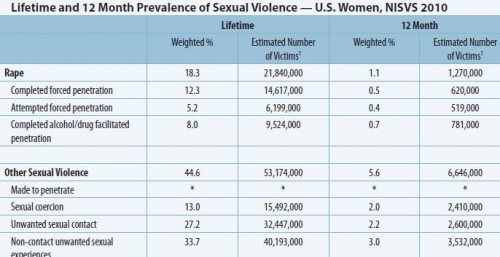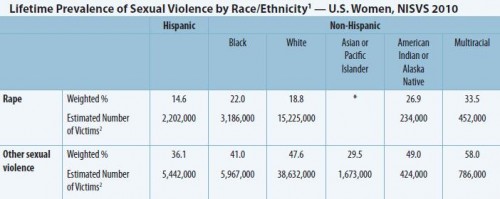In January the U.S. government announced a new definition of “forcible rape” to include male victims and oral or anal penetration in addition to vaginal. This has legal implications, of course, but also symbolic ones. Language shapes how we experience the world, potentially changing how we feel about an event in our lives. This happened to at least one person, prompting them to send in a postcard to Post Secret:
The more inclusive definition is a net good, I believe. Legally, it’s best that we have the tools to prosecute these crimes and, for some people, being able to use this word to describe something terrible that happened to them will be validating and empowering. For others, however, it may heighten the trauma. “Rape” is a powerful word and many Americans imagine it to be among the most harmful of crimes. Like child abuse, but unlike even very violent non-sexual physical assaults, rape is often believed to be a long-lasting harm, maybe even one that you can never truly recover from.
Perhaps the word “dammit” in the card is meant to convey exactly this sentiment. It was easier, perhaps, to think it was a bad night. Now, though nothing has changed except for the language, the victim has to contend with having been raped.
Lisa Wade, PhD is an Associate Professor at Tulane University. She is the author of American Hookup, a book about college sexual culture; a textbook about gender; and a forthcoming introductory text: Terrible Magnificent Sociology. You can follow her on Twitter and Instagram.












